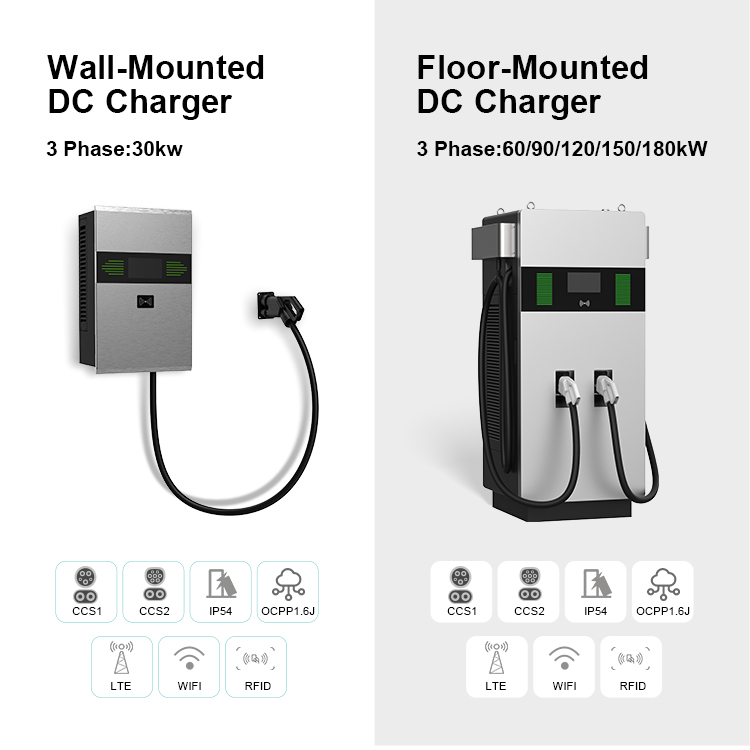As more and more people switch to electric vehicles (EVs), the demand for fast charging is increasing. DC EV chargers provide the solution to this need, with two main types of connectors - CCS1 and CCS2. In this article, we will provide a comprehensive guide to these connectors, covering the following aspects:
What are CCS1 and CCS2 Connectors?
CCS stands for Combined Charging System, which is an open standard for DC EV charging. CCS1 and CCS2 connectors are two types of charging cables that are designed to provide fast charging for electric vehicles. The connectors are designed to work with DC charging stations, which provide high-power charging that can quickly charge an EV battery.
What are the Differences Between CCS1 and CCS2 Connectors?
The main difference between CCS1 and CCS2 connectors is the number of communication pins. CCS1 has six communication pins, while CCS2 has nine. This means that CCS2 can provide more advanced communication between the EV and the charging station, enabling features such as bidirectional charging. Bidirectional charging allows an EV to discharge back into the grid, making it possible to use EV batteries as energy storage devices.
What EV Models are Compatible with CCS1 and CCS2 Connectors?
CCS1 connectors are mainly used in North America and Japan, while CCS2 connectors are mainly used in Europe and Australia. Most EV models are designed to work with either CCS1 or CCS2 connectors, depending on the region where they are sold. For example, the Chevrolet Bolt and Nissan Leaf are compatible with CCS1, while the BMW i3 and Renault Zoe are compatible with CCS2.
What are the Benefits and Drawbacks of CCS1 and CCS2 Connectors?
CCS1 and CCS2 connectors both offer fast charging rates, with a maximum charging rate of up to 350 kW. However, CCS2 has three additional communication pins, which allow for more advanced communication between the EV and the charging station. This enables features such as bidirectional charging, which is not possible with CCS1. On the other hand, CCS1 is generally considered to be more robust and durable than CCS2, making it a better choice for use in harsh weather conditions.
How to Choose Between CCS1 and CCS2 Connectors?
When choosing between CCS1 and CCS2 connectors, it is important to consider the compatibility of the charging equipment with your EV model. If you are located in North America or Japan, CCS1 is the connector of choice, while CCS2 is the preferred option in Europe and Australia. It is also important to consider the features you need, such as bidirectional charging, and the environmental conditions where you will be using the charging equipment.
Conclusion
CCS1 and CCS2 connectors are two types of charging cables that provide fast charging for electric vehicles. While they share many similarities, they differ in terms of their communication pins, compatibility with EV models, and suitability for different environmental conditions. Understanding these differences is important for EV drivers and charging station operators to choose the right charging equipment for their needs.

Post time: Mar-25-2023
